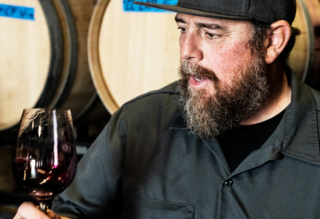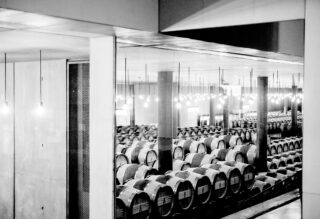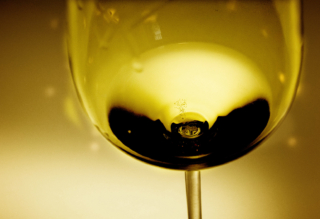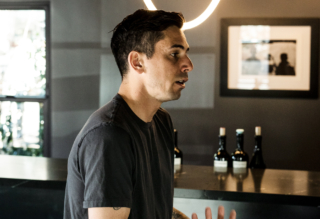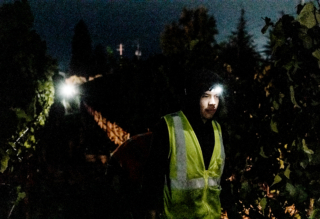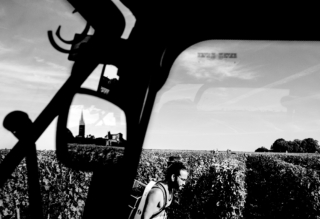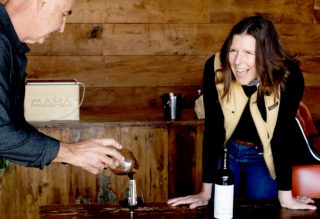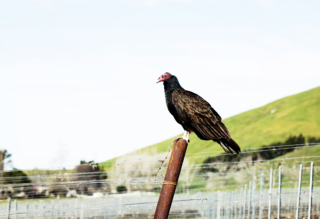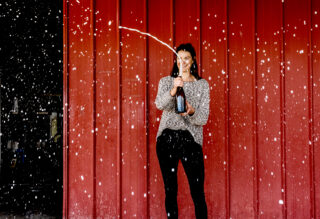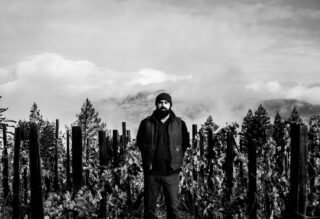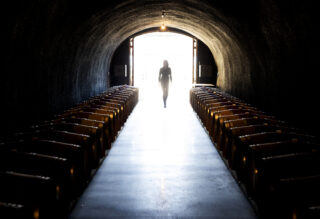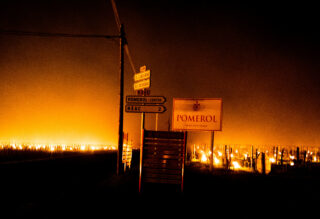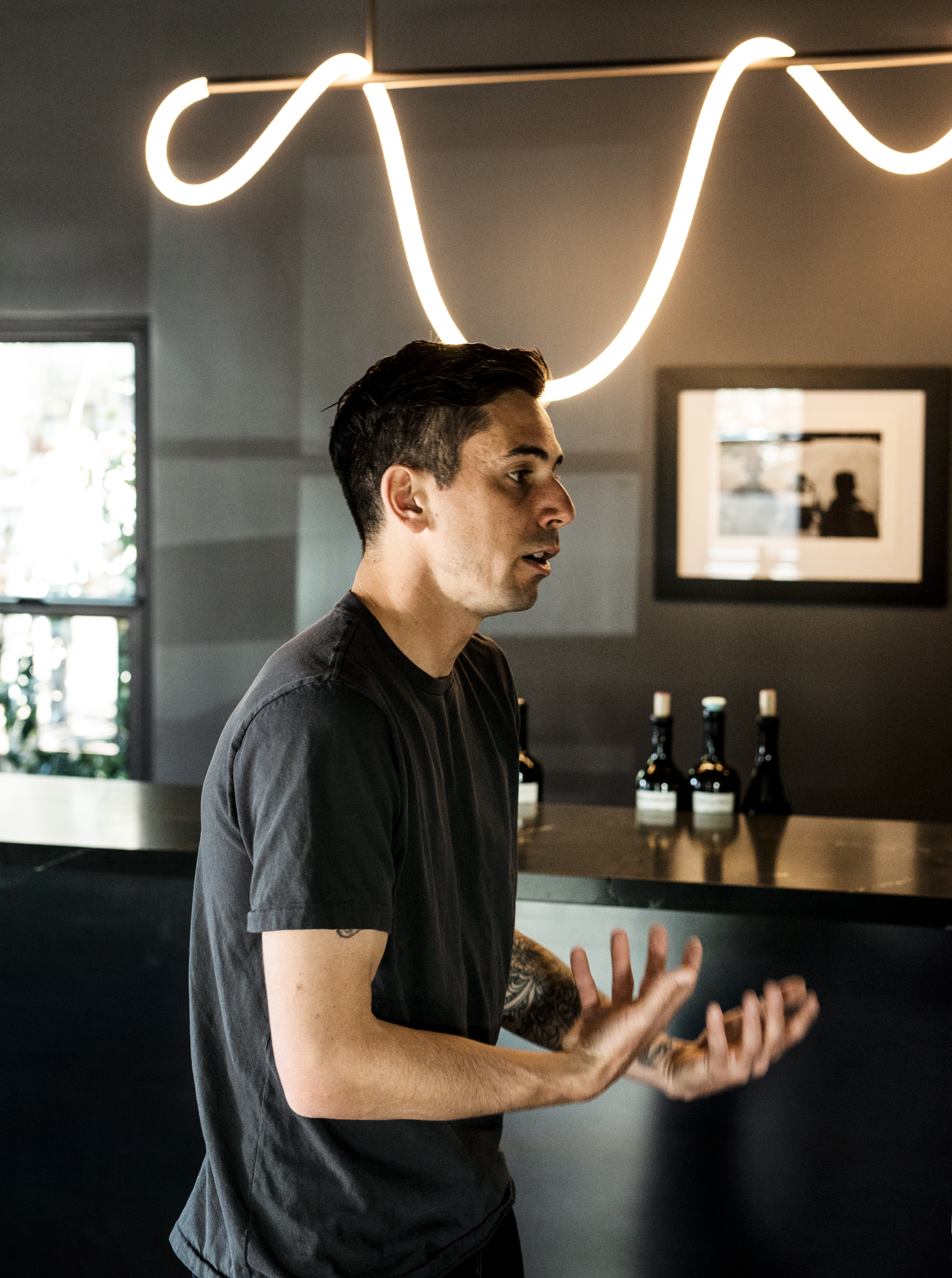
The Sanguine Terroir of Terre et Sang
"When you set out to do things a specific way, and you’re telling people you do things a specific way, and you want to appeal to people in that way, if you fall short of the mark, you’re going to look awfully stupid."
- Winemaker Duncan Harmon
Winemaker Duncan Harmon caught the wine bug when he was just 11 years old. During a family vacation in Florence, Italy, he found himself asking questions of the wine director at a local restaurant. Amused by the inquisitive young boy, the wine director offered to show him the wine cellar, and the young Harmon’s imagination was sparked. He looked around and saw "well-dressed people enjoying wine. I remember thinking this is super cool. That was the AHA moment. There was this elevated culinary experience that caught my attention."
At 14, Harmon visited his first winery in Montelcino and sipped a Brunello di Montelcino from his mother’s glass. "I was tasting wine at a castle," he says, bright-eyed. From that day forward, he began perusing wine lists whenever the family dined out, asking questions of wine directors and, in later years, choosing wines for the table.
Harmon and his mother, Dalita, own and operate Terre et Sang winery in Santa Barbara County, California. I’m usually hesitant to write about brand-new producers. The business is fickle, and wineries come and go. But, right out of the gate, Terre et Sang has garnered favorable reviews from top critics and attracts a steady stream of visitors to its small tasting room in Los Olivos, California. Though the whole family enjoys wine, the winery and tasting room are owned solely by the mother-and-son duo.
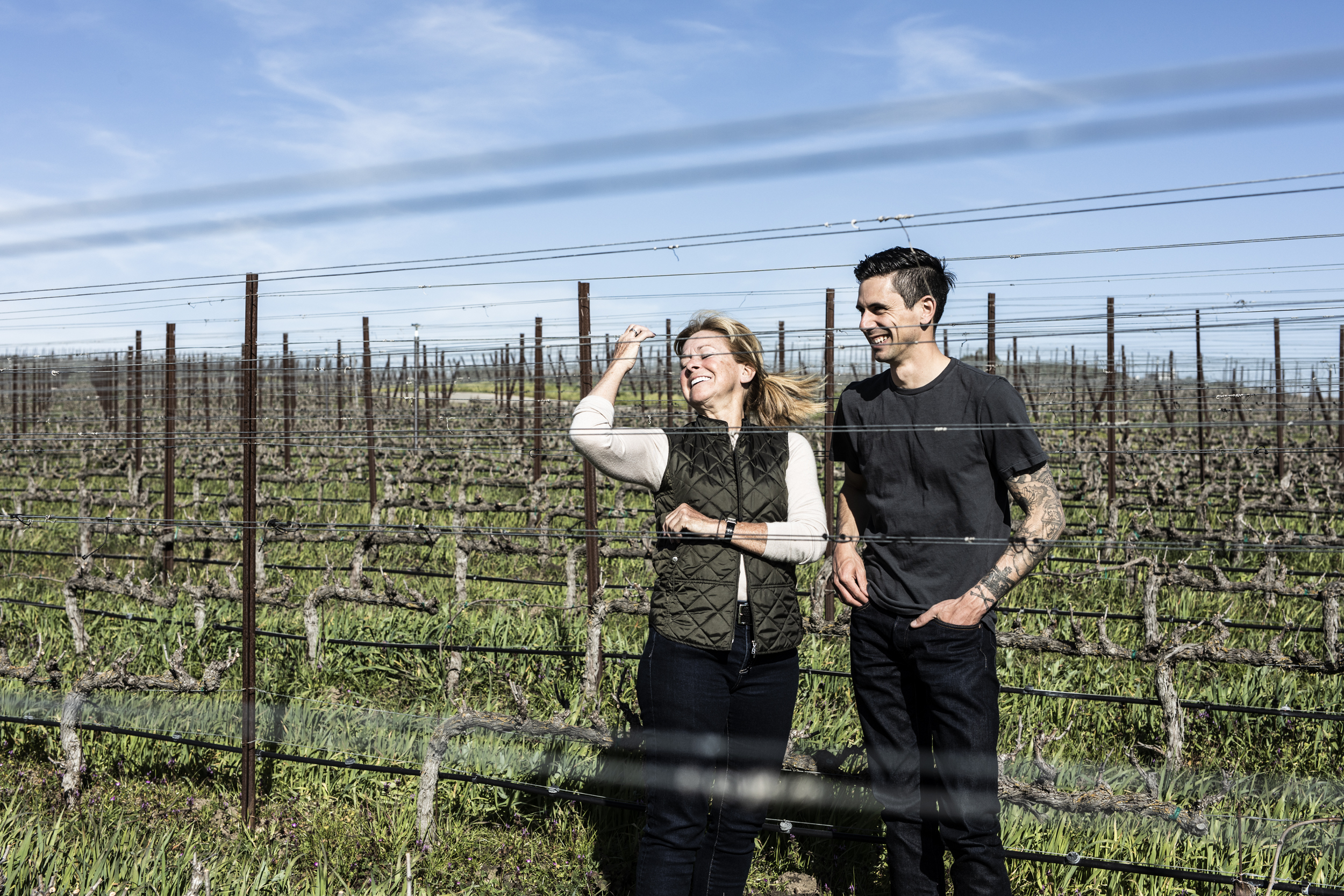
Harmon, now 33, credits international travel and being surrounded by fine wines since his youth as inspirations for his vocation. As a young man, "he didn’t talk about pursuing wine," Dalita says. "There was nothing intentional until towards the end of college." At Penn State, Harmon says, he studied "having a good time. I went to that school to have the experience of going to that school. It was interesting and fun, but as soon as I was done, I was done." He graduated as a communications major.
When he was in his early 20s, his interest in wine accelerated after visiting his mother in Arroyo Grande, in San Luis Obispo County. "I flew out, landed at night. When I woke up in the morning, I could see Alban Vineyard from my mom’s living room. I realized during that trip that the Central Coast is the place for me." At 24 years of age, Duncan decided he wanted to be a winemaker.
He found work nearby, holding down a couple of part-time jobs, one at a real estate office and the other at a wine bar next door. For the following two months, nearly five days a week, Harmon tasted throughout Paso Robles wine country whenever he had a chance. "It brought back everything I remembered about Italy. The food and wine scene. I got sucked in." He became a "gate crasher," he tells me, standing outside hard-to-get into wineries like Saxum and L’ Aventure. "I’d ring and ring until they’d buzz me in."
Dalita and Duncan Harmon launched Terre et Sang in 2019. Duncan was 29 years old when he first tried his hand at winemaking. "We started doing this for fun in 2018 and then seriously in 2019. We approached it with a mindset that was serious," he says. He’s had no formal training and has learned the ropes from a series of mentors, both in the vineyard and the cellar. "A lot of the people I’ve learned the most from I’ve never met," he says. "I have never met Manfred and Elaine Krankl. However, I have done every bit of research, reading everything I can to pull snippets out about what their X factor is. And, with them, it’s attention to detail. Nik Krankl, of Fingers Crossed, told me, ‘Dad once said, the trick is to do to all the things all the other wineries say they do.’ It’s not just the decision you make but how you execute it. You learn from the greats that it can be fun, but the seriousness and intention must be there."
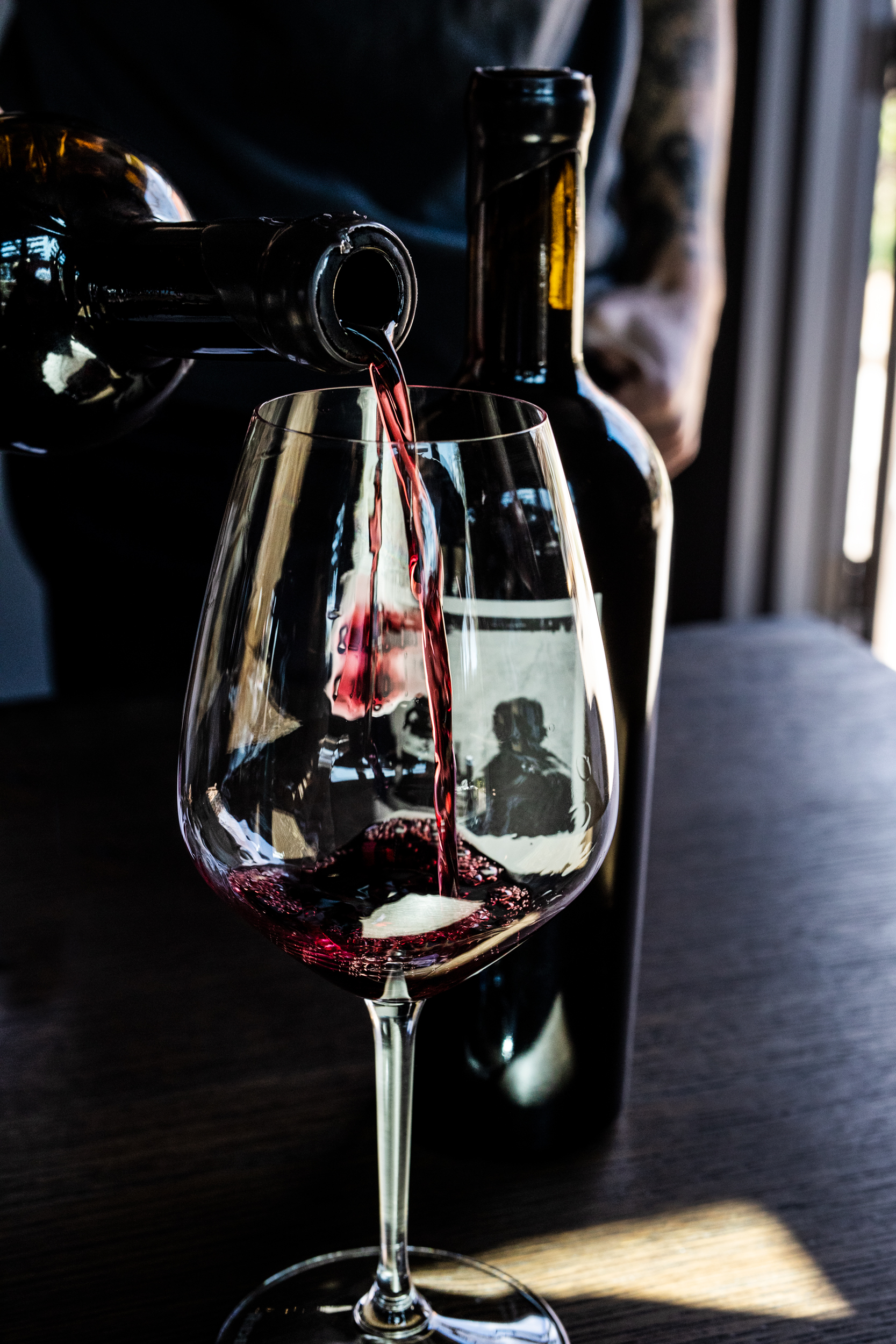
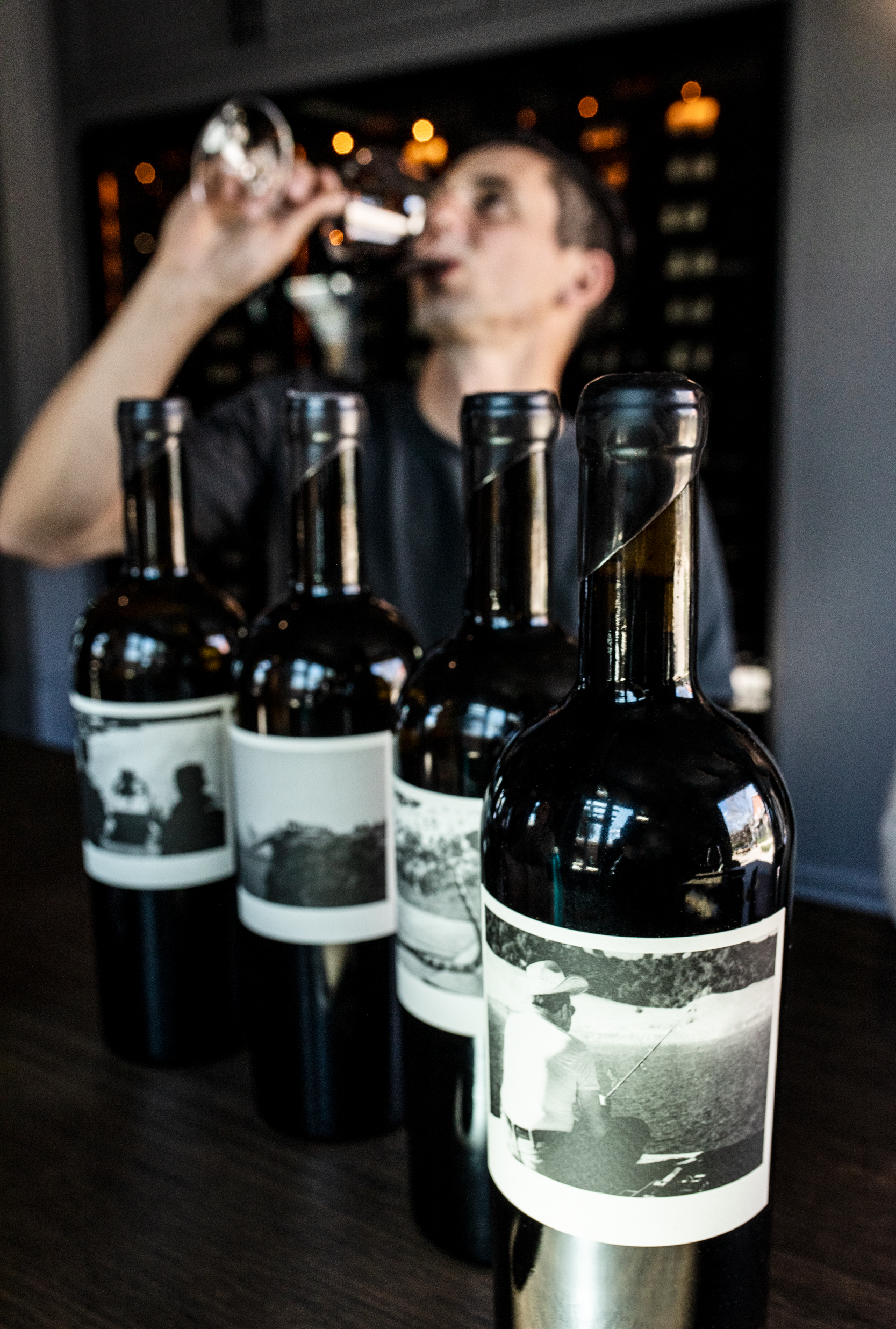
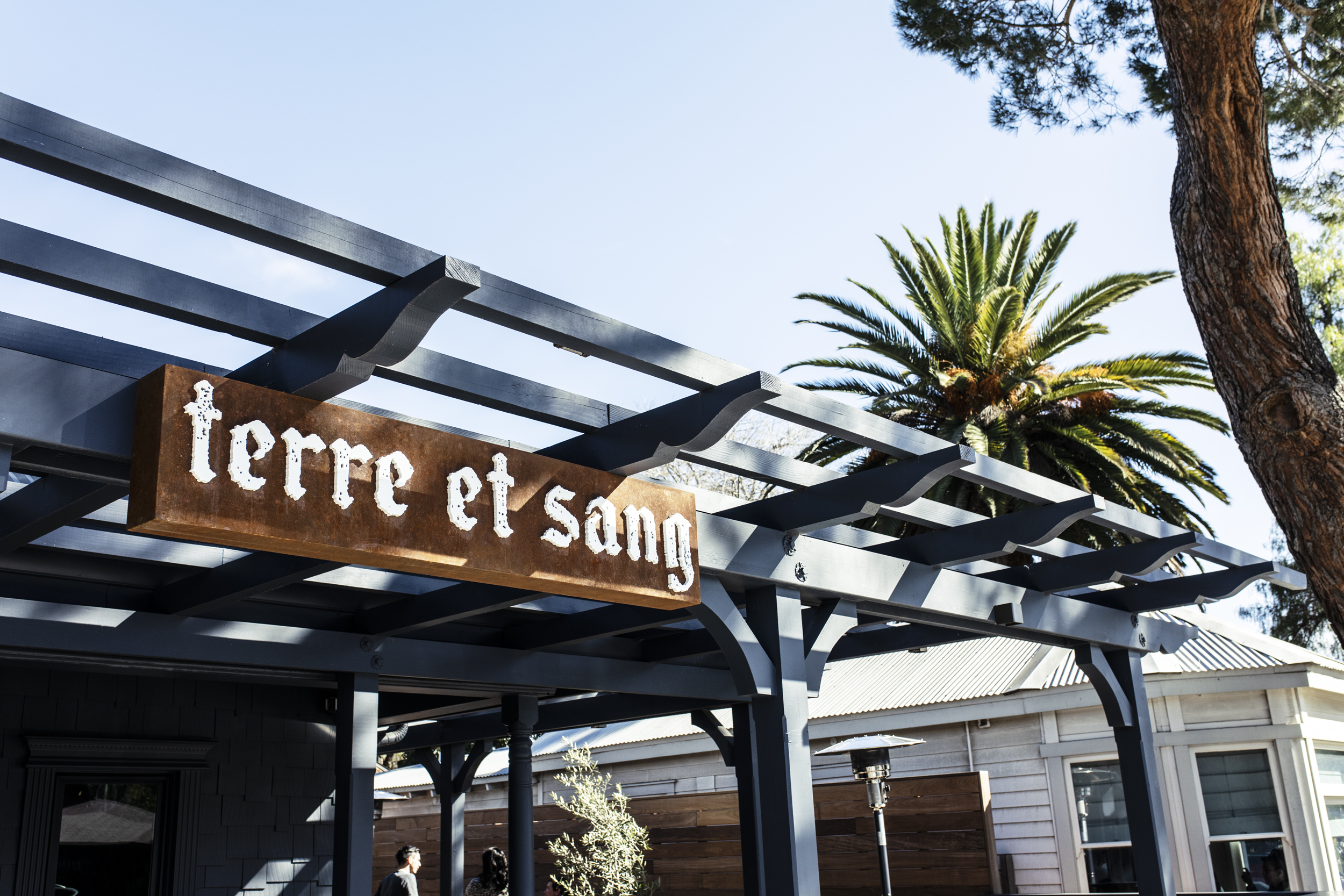
The first meet-up with the Harmons is at Kimsey Vineyard, a little gem of a designate at the intersection of where the cool and coastal Sta. Rita Hills appellation breezes meet the influence of the more temperate and inland Ballard Canyon appellation. His mother tells me that "Duncan was constantly asking questions. He was deep-diving into methodologies and putting them together. And that enhanced my commitment. He very quickly established some great relationships with some great winemakers. One of the best surprises in all of this is how open people were with Duncan. How willing they were to help. But I give Duncan a lot of credit for having crammed a lot of knowledge into his head, such that he could engage and understand what they were saying. Then it’s about tweaking. Someone can tell you, ‘This is exactly how you make wine,’ but then there are other decisions that are ultimately up to you that give you the wine you want." The day is bright and clear as Harmon and Dalita walk the vineyard rows delegated to them. They exchange knowing glances as they observe their blocks but don’t say much to each other. There’s an easy, comfortable silence between them.
Harmon credits vineyard owner Michael Larner of Larner Vineyard in Ballard Canyon with helping them enter the wine business. "He was the first person to take a chance on us," he says. "We had had the 2015 Homage to Steven Larner by MacPrice Meyers, and I thought, ‘I need to go to Santa Barbara.’" Following Larner, they quickly forged relationships with other vineyards in Santa Barbara County, including Bien Nacido (Santa Maria Valley), Kimsey (Ballard Canyon), Peake (Sta. Rita Hills) and the Moulds Vineyard in the Napa Valley, from which they produce a Cabernet Sauvignon, the only non-Rhone-varietal wine in the Terre et Sang lineup.
Dalita was raised in rural Indiana. "My mom’s from Crawfordsville, which is a town of about 12 people. I grew up in Newmarket and Lafayette, near rural Indianapolis. My dad was a stock car racer back in the day, so I went to the Indy 500 a lot. I grew up racing and sitting on a tractor. We grew all our own stuff. I’m an Indiana farm girl. So, the growing side of this really appealed to me and struck a chord with me."
The first wine Harmon made was from fruit off his mother’s vineyard in Arroyo Grande. The vintage was 2018, and they managed the vineyard and the harvest entirely on their own. "It was an exploration," Dalita says. "By this point, Duncan was interested, so we were testing ourselves. We had a backyard vineyard, and we started enjoying the farming side of that. We got some other grapes from Happy Canyon (in Santa Barbara County), and we made a Cabernet Sauvignon and Sauvignon Blanc from there, and from my backyard vineyard, an estate Blanc. We loved it, loved everything about it, especially talking to vineyard managers."
Harmon is tall and lean, with dark hair and a youthful yet intense aspect. He listens intently as his mother speaks, but he’s anxious to add his own thoughts. "All of the work was done just by us," he says. "We had to learn it all. We wanted it to be good, whatever it was going to be, so all the shoot-tying, pruning, spraying, soil nutrients everything became a research project for us. Then it’s the application, and we did it! One of my favorite days was when we were shoot-tying and doing a green drop and playing Black Sabbath and having a great day in the vineyard. It was 90 degrees, and we were sweating, and just talking, having fun. We very much enjoyed the work and realized that we loved it. You have to love it. Otherwise, it’s just too much work."
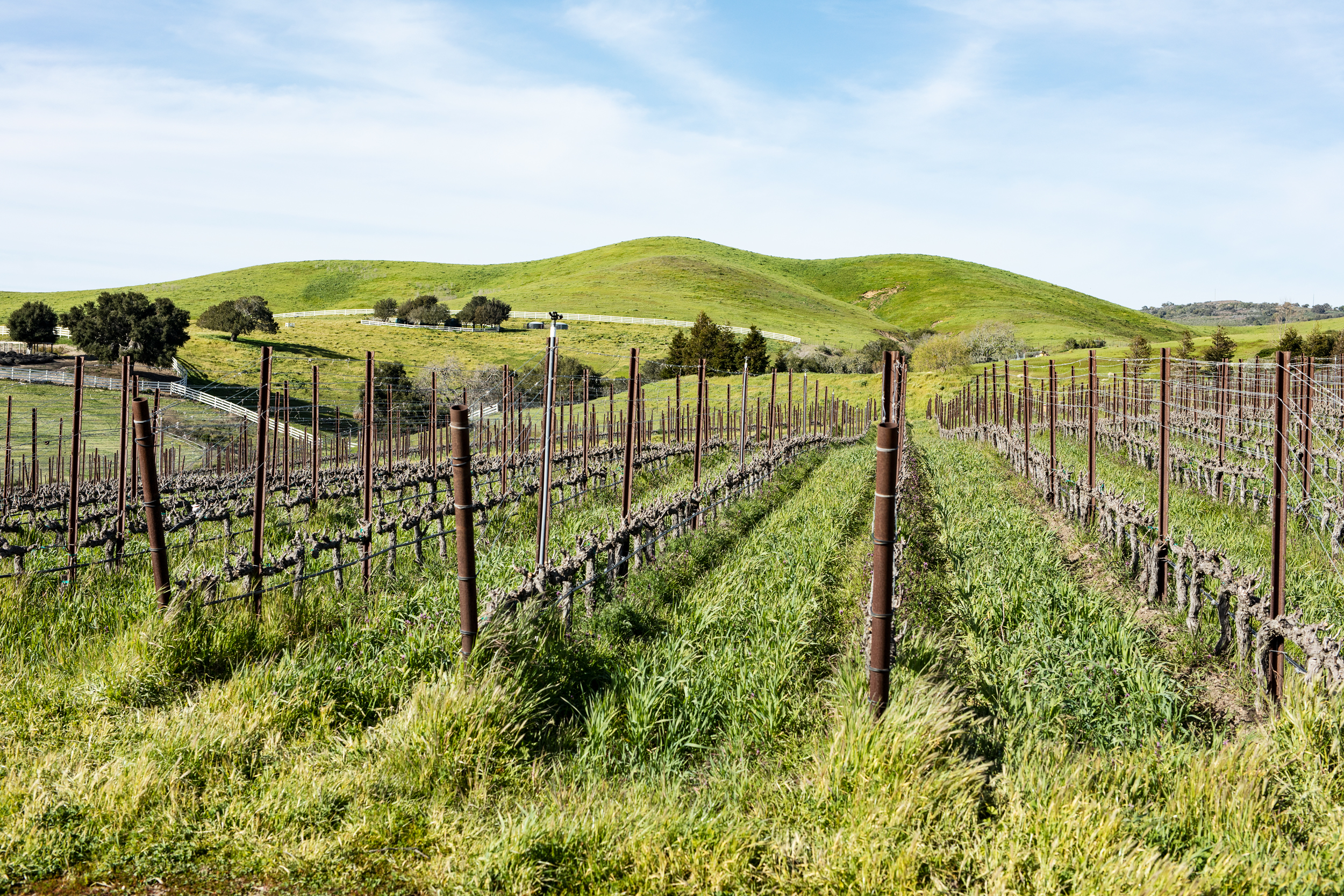
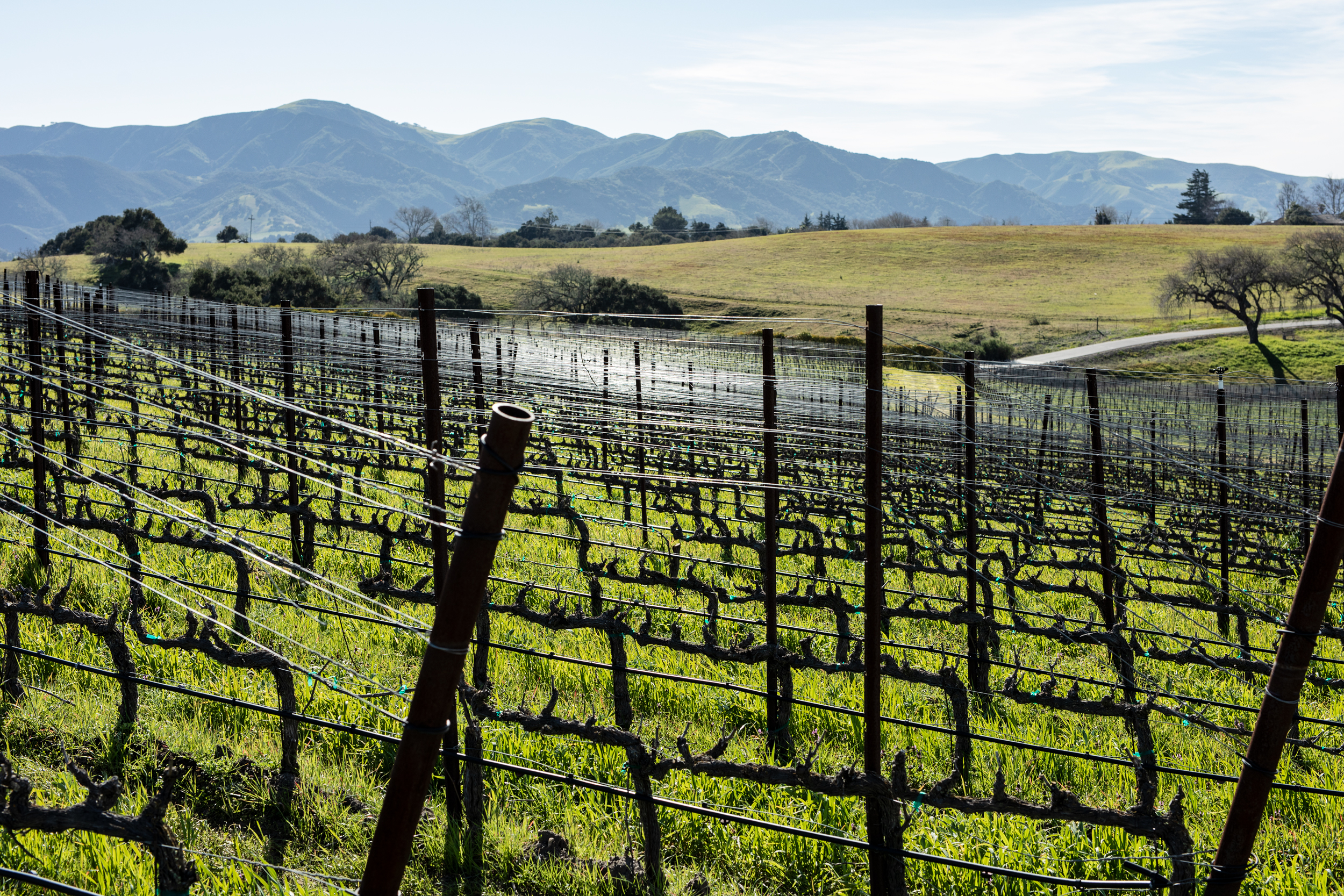
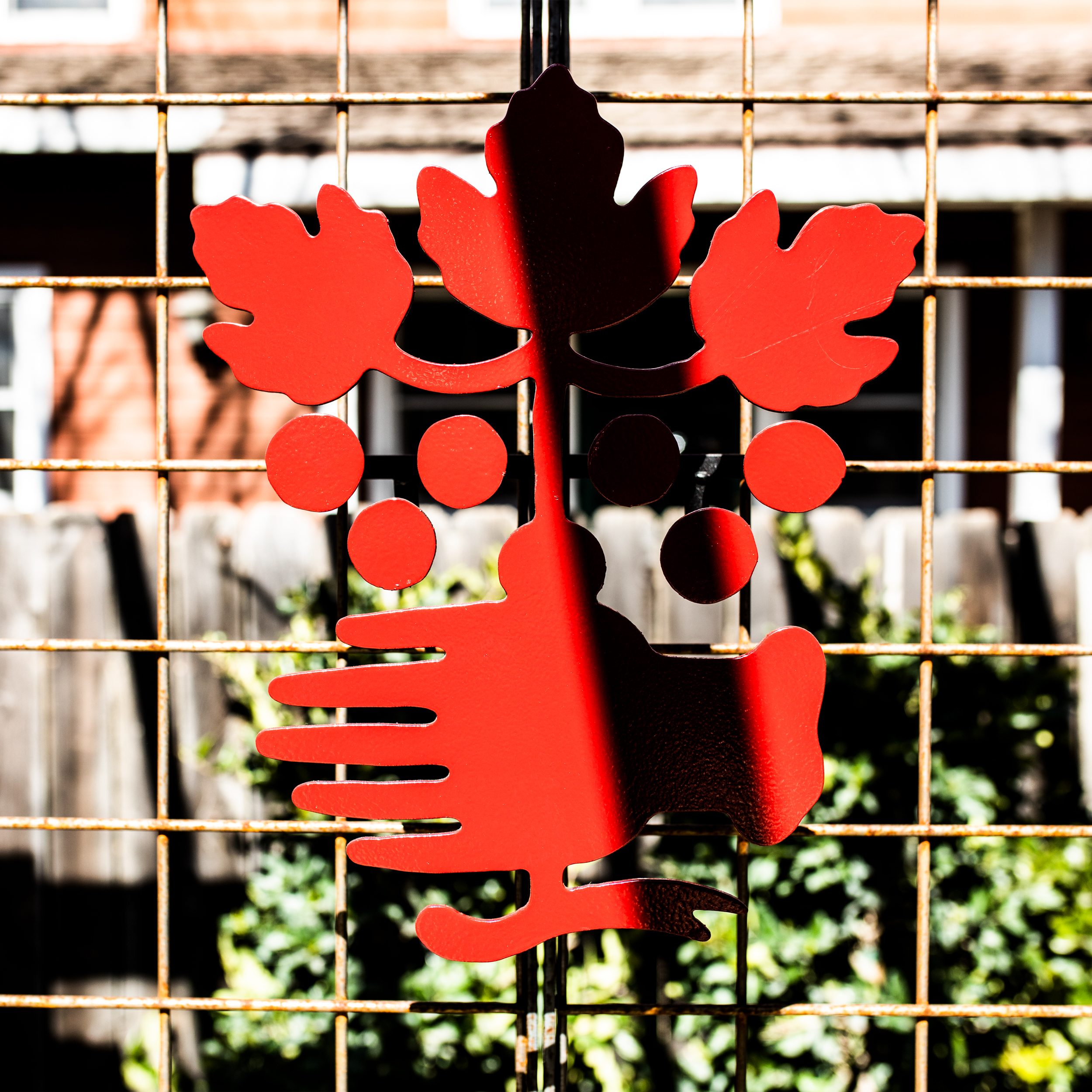
The next time I meet up with the mother-son duo, they’re awaiting me on the front porch of their tasting room in Los Olivos, one of Santa Barbara County’s small agricultural towns. It’s just a couple of doors down from the town’s only market. Sleek and modern, the interior was designed by the pair, who have similar aesthetic sensibilities. "We’re always pursuing something that’s extremely well-made," he says. "We’re obsessed with denim. We’ll research how a place is making their denim. It doesn’t matter what it is. We are the kind of people who love things made by hand, with intention and attention to detail. We love finely made things. The craft and dedication to things."
When they’re not visiting their vineyards or working out of their small winery located off the Santa Rosa Road corridor of Sta. Rita Hills, not far from the famed Hilt Estate, Dalita says, they "travel to Napa frequently. We’re there doing homework. Checking out wineries, vineyards, tasting rooms. We’re always on the hunt to add to our knowledge," she says. Harmon adds they’ve just recently returned from a trip to Napa to "see Shawn Johnson at Amulet because they’re making single-vineyard designated Cabs that are all made the same way. They’re a kindred spirit. That same afternoon, we saw Graham and Alex McDonald. We go with purpose, and we love to meet growers and winemakers who have done things in an organic way."
Dalita adds that "everything that got us here was an organic process. We looked at the great wines we loved and recognized what it was about them that we liked. All our decisions are based on our palate. It’s been just a trust of that, a trust of knowing what we want to make, and we’ll figure out how to make that by testing all these theories and applications and ways of doing things. I’ve always believed that if you feel you have an instinct, trust it. If you go through life doing that, you learn to trust it more and more as you go along. You reinforce your ability to trust your instinct. When you go forward and trust your instinct, that’s what makes the difference."
They are perhaps best known for "Kissing Vipers", their critically acclaimed Grenache from Bien Nacido Vineyards. It’s grown on Block 39, a southeast-facing hillside comprised of mostly Monterey shale and loam. A lush, rich wine, it also shows restraint and balance and an impossibly long finish, suggesting age-worthiness. More recently, they’ve locked down Z Block, formerly sourced by both Adam Tolmach of Ojai Vineyard and Manfred Krankl of Sine Qua Non. When they were informed that they’d get Z Block fruit, Dalita tells me, "Duncan started crying. He was so happy. We had lobbied for it constantly."
Though they work closely with vineyard managers, they call their own picks "100% on taste," Dalita tells me. I’ve now had a couple of vintages of their core wines, and, refreshingly, they’re not monochromatic. When I tell Dalita this, she says, "We enjoy vintage variation. We let them be what they are." Harmon credits vineyard managers like Chris Hammell at Bien Nacido Vineyards with teaching them how to yield the best results from their vineyard blocks and vine rows. "We ask him questions. We don’t tell him what to do. It’s collaborative. He has a huge wealth of knowledge, and he’s also fun." Harmon says.
The duo is keen on experimentation and are currently playing with Chardonnay and Roussanne they harvested in 2021. "We might make a white blend of some kind." Though the rest of the family remains uninvolved in the day-to-day operations, they find ways to be helpful. "Fred, my husband, brings pizza and drinks out to us when we’re working late. And sometimes family will help on the sorting table. I love it more than I ever expected. It’s grueling, but I love it so much. And doing it with Duncan is meaningful. People say we’re intense, but I think we’re passionate. With what we’re trying to achieve, I think it takes a level of intense passion."
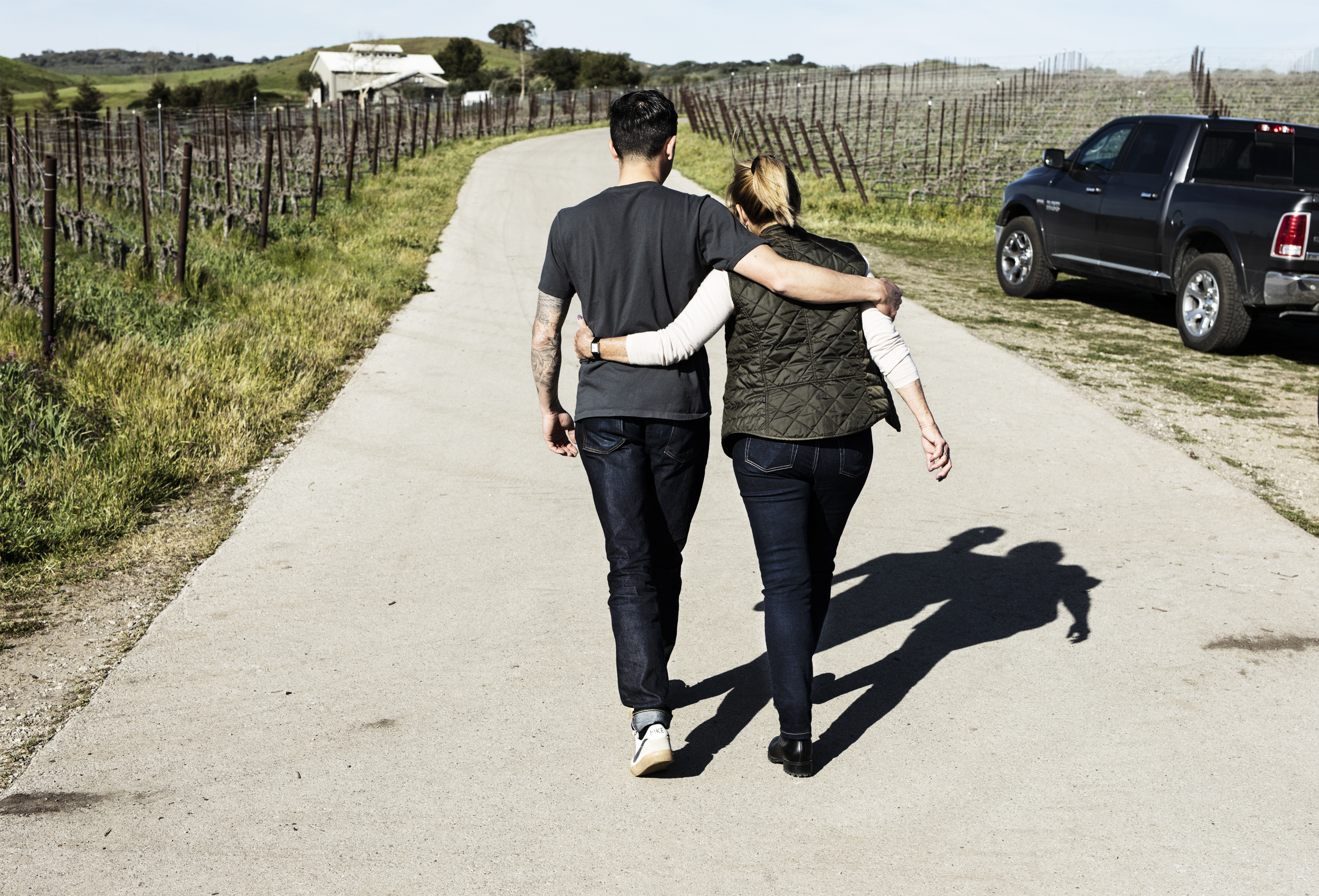
–
Article by R. H. Drexel
Photography by Svante Örnberg
See more work from Svante at svanteornberg.se by clicking here!
